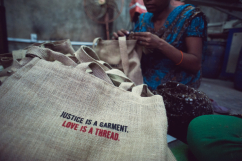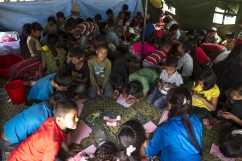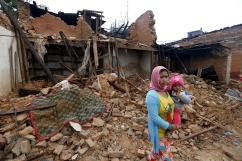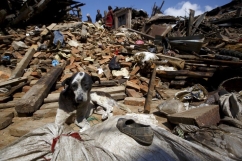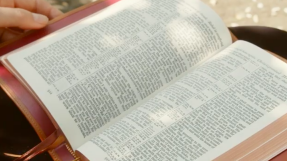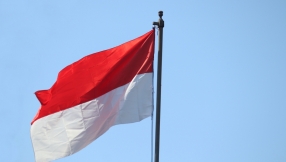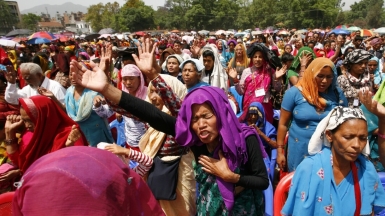
Proposed anti-conversion laws could threaten religious freedom in Nepal, country experts have warned.
A new Nepalese constitution is being drafted, and the proposed legislation currently includes a clause that states: "No one shall behave, act or undertake activities that breach public order or break public peace/peace in the community; and no one shall attempt to change or convert someone from one religion to another, or disturb/jeopardise the religion of others, and such acts/activities shall be punishable by law."
Christian Solidarity Worldwide (CSW) has warned that this wording could mean religious freedom for Nepalese citizens would be "severely curtailed".
It "fails to allow for choosing and changing one's faith to be seen as a positive individual choice or as a matter of individual rights," a CSW briefing released today says. It branded the draft clauses "inconsistent with the international human rights framework."

CSW has also expressed concern that the legislation could be interpreted to mean that anyone who talks about their faith to someone of a different religion could be accused of attempted conversion, and punished by law. "This endangers two internationally guaranteed fundamental rights of every individual: firstly the right to enjoy full freedom of expression, and secondly the right to follow a religion of his or her own choice and to manifest that religion in word and action."
Until 2008, Nepal was the only official Hindu state in the world but was then declared a secular republic. However, the right-wing Rashtriya Prajatantra Party has called for a ban on all religious conversions and reports say that the government agreed to these demands on July 3.
Five states in neighbouring India currently have anti-conversion laws which state that those who wish to convert to another religion must first gain official permission. Religious leaders are also required by law to report conversions or risk a three-year jail sentence themselves, prompting calls for greater freedom for minority faith groups.
Nepalese Christians account for less than two per cent of the Hindu-majority population of 28 million people.
"The freedom to choose and change one's faith is a fundamental right which must be upheld as an essential part of any constitution which adheres to international human rights principles," CSW chief executive Mervyn Thomas said.
"Nepal is a state party to the International Covenant on Civil and Political Rights (ICCPR), which guarantees the right to freedom of thought, conscience and religion, including the freedom to have or to adopt a religion or belief of his or her choice.
"CSW continues to urge all political parties and leaders in Nepal to insist that this right be fully guaranteed in the new constitution."










